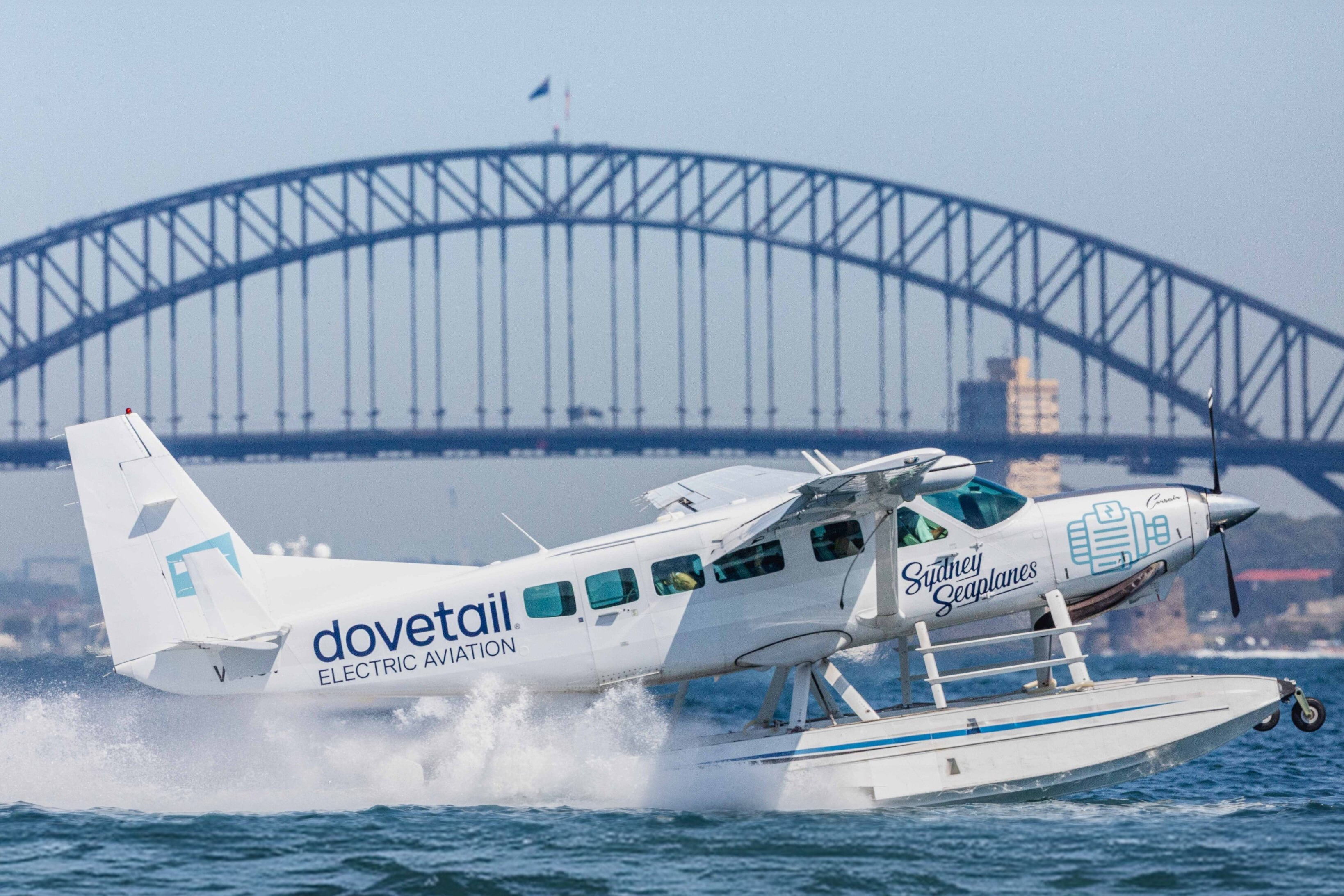We use cookies to give you a better experience on our website. Learn more about how we use cookies and how you can select your preferences.
Dovetail Electric Aviation - Fast-Tracking Zero Emissions for Commercial Aviation

Dovetail Electric Aviation is making ground-breaking strides in reducing Australia’s greenhouse gas emissions by pioneering the development of electric-powered aircraft.
The company has been awarded a $3 million Cooperative Research Centres Project (CRC-P) grant. Collaborating with Sydney Seaplanes, the University of New South Wales, CSIRO, and Memko Aviation, Dovetail Electric Aviation aims to develop, test, and certify electric conversions of conventionally powered aircraft. This will lead to the first certified electric propulsion and energy system in its category, a significant milestone in Australia’s transition to zero-emission aviation.
Transport on track to become Australia’s biggest emissions source
Australia’s transport sector is the third-largest source of greenhouse gas emissions, contributing 21% to the nation’s total emissions. Without urgent intervention, the transport sector is projected to be Australia’s largest source of emissions by 2030.
Dovetail’s efforts to convert existing aircraft to electric propulsion are not only reducing carbon emissions but also creating a viable economic solution for smaller aircraft. These conversions are integral to fast-track zero-emission commercial aviation in Australia, particularly for regional and remote communities.
Dovetail's initial tests have shown that converting small aircraft to electric can lead to 30% savings per available seat-kilometre. These savings are primarily from reduced engine maintenance and fuel costs. This figure is expected to increase to above 40% as battery technology improves. The savings will make previously uneconomical routes more viable and improve regional air connectivity, especially to communities that currently rely on less efficient and polluting forms of transport.
We aim to convert the fleet of small passenger and cargo commercial aircraft to zero emissions and connect regional communities that are currently only accessible with the conventional, polluting versions of these aircraft.
Project planning for electric conversions
Dovetail's strategy of retrofitting aircraft with electric propulsion systems will halve certification times, rather than requiring fleet renewal. The goal is to have a prototype aircraft up and flying in months, demonstrating the viability of electric-powered passenger flights and commercialise it within 2 years.
The company expects the technology will enable the development of a local conversion centre ecosystem that could create opportunities in testing and engineering services to third parties, such as large cargo drones with electric power plants or electric vertical take-off and landing (eVTOL) integrators. Conversion hubs will not only create high-tech jobs in aviation but also expand the potential applications for electric propulsion systems globally.
It is conceivable that a whole electric aviation hub may emerge around this project. Upon completion, the conversion and operation of the Cessna Caravan will create high-tech manufacturing, operations, and maintenance jobs nationally.
Leading sustainable aviation, in Australia and globally
Dovetail Electric Aviation is at the forefront of zero-emission aviation in Australia. The company has presented its proprietary Electric Propulsion System and patent pending battery technology at the Avalon 2025 Air Show and has a prototype flight planned in the next 12 months.
With the help of CRC-P funding, Dovetail is leading the way in electric aviation and helping shape the future of aviation where electric propulsion and sustainable practices replace the carbon-intensive technologies of the past. With cutting-edge technology and a clear roadmap to the future, Dovetail is turning sustainable aviation into a reality today.
Further information
-
Find out more about the Cooperative Research Centres Projects Grants.
Cooperative Research Centres Projects (CRCP) Grants